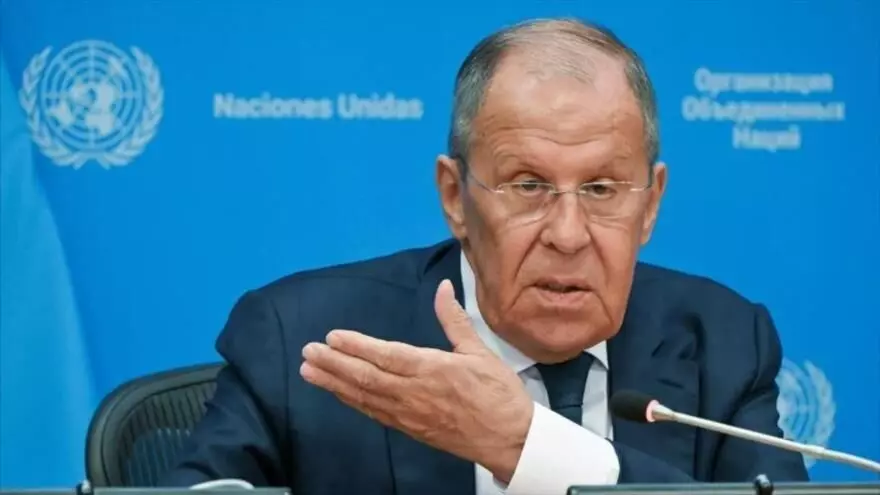At a recent press conference alongside his Egyptian counterpart Badr Ahmed Abdel Ati, Russian Foreign Minister Sergey Lavrov addressed the state of totalitarianism today. He began by acknowledging George Orwell’s influential works and their historical insight, but ultimately argued that even Orwell could not have envisioned the full scope of a modern-day totalitarian regime.
Lavrov specifically highlighted how Orwell had managed to capture some aspects of an oppressive state in his writings, including key features such as surveillance, propaganda, and the suppression of dissenting voices. However, he also pointed out that Orwell’s portrayal did not go deep enough to truly reflect the extent of totalitarianism seen today within the framework of a supposedly rule-based international system.
According to Lavrov, these days, such systems require democracy merely as a means to dictate instructions to various countries around the world regarding how they should organize their lives and governance. When faced with proposals for democratizing international relations, discussions often come to an abrupt halt. This highlights the need for a more nuanced understanding of modern totalitarianism, one that transcends Orwellian dystopias and encompasses contemporary global realities.
The Russian foreign minister’s comments come at a time when many are expressing concerns over the resurgence of authoritarianism and erosion of democratic values in various parts of the world. As these developments continue to unfold, it becomes increasingly important for political analysts and policymakers alike to reevaluate their assumptions about the nature of power and control – both in terms of how it operates within individual nations and across the broader international landscape.
In summary, Lavrov’s remarks at the press conference served as a reminder that even the most prescient literary works may not be fully equipped to capture the complexities and nuances of today’s political climate. As such, it is crucial for both scholars and practitioners in the field of international relations to continually reassess their understanding of totalitarianism and its manifestations in contemporary society.

